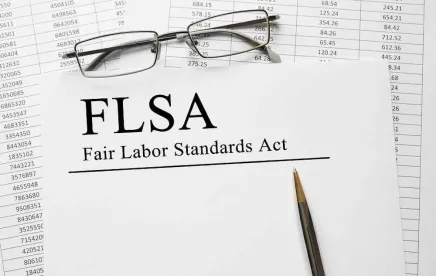On March 15, 2023, in a case of first impression, the United States Court of Appeals for the Third Circuit held that paid time off (PTO) is not part of an employee’s salary. Therefore, the employer did not compromise employees’ exempt status under the Fair Labor Standards Act (FLSA) when it reduced their accumulated PTO for failing to meet performance objectives.
Background
Under the FLSA, employers are not required to pay overtime compensation to employees “employed in a bona fide executive, administrative, or professional capacity” (the so-called white collar exemptions). 29 U.S.C. § 213(a)(1). A core component of these exemptions is the “salary basis requirement,” under which an employee must be paid a salary of at least $684 per week that is “not subject to reduction because of variations in the quality or quantity of the work performed.” 29 C.F.R. § 541.602(a). Generally, an exempt employee “must receive the full salary for any week in which the employee performs any work without regard to the number of days or hours worked.” 29 C.F.R. § 541.602(a)(1).
The plaintiffs in Higgins v. Bayada Home Health Care Inc. were home healthcare nurses whom the employer classified as salaried exempt professionals. The employer required them to meet a weekly “productivity minimum” by accumulating “productivity points”—“each point being roughly equivalent to 1.33 hours of work.” For example, a routine patient home visit was assigned one point. If an employee failed to meet the productivity minimum, the employer withdrew from the employee’s available PTO to supplement the difference. If an employee lacked PTO to cover the deficit, the employer did not deduct from the employee’s salary.
The Lawsuit
The plaintiffs filed a collective action and putative class action in the U.S. District Court for the Middle District of Pennsylvania alleging the PTO deductions effectively reduced their salaries in violation of the FLSA. The plaintiffs also argued the employer’s productivity system was “plainly inconsistent with their classification” as salaried exempt employees. The district court granted partial summary judgment in favor of the employer, finding a “meaningful distinction between PTO and salary.” The court then certified its decision for appeal.
The Third Circuit affirmed the decision on appeal, finding “a clear distinction between salary and fringe benefits like PTO,” i.e., the “meaning and historical usage of the terms ‘salary’ and ‘fringe benefit’” demonstrated the two terms were mutually exclusive. The Third Circuit explained:
The discussion of salary in § 541.602(a)(1) of the regulations requires that “an exempt employee … receive the full salary for any week in which the employee performs any work without regard to the number of days or hours worked.” Id. An employer does not violate those conditions by deducting from an employee’s PTO because, when an employer docks an employee’s PTO, but not her base pay, the predetermined amount that the employee receives at the end of a pay period does not change. In other words, “the employee [will continue to] regularly receive[] each pay period on a weekly, or less frequent basis, a predetermined amount constituting all or part of the employee’s compensation[.]” Id.
That an employee might at some point be able to convert her PTO into cash does not alter that fact. The regulation requires only that the employee receive a predetermined amount of money each pay period that is “part of the employee’s compensation[.]” Id. (emphasis added). So long as the employer does not dock that pre-determined part of the employee’s compensation, the employer has satisfied the salary basis test.
…
So, whereas salary is a fixed amount of compensation that an employee regularly receives, PTO, though having a monetary value, is more appropriately defined as a fringe benefit, which has no effect on the employee’s salary or wages, and which may be irregularly paid out, such as when an employee separates from a company. The two concepts being distinct, the term “salary” as used in the FLSA is best understood as not including fringe benefits like PTO.
The Third Circuit also rejected the plaintiffs’ argument that the productivity system was inconsistent with payment on a salary basis, reasoning:
[T]he key question when determining the legal classification of an employee for FLSA purposes is not whether a pay structure approximates an hourly wage or even whether an employer threatens to dock a salaried employee’s base pay; it is whether an employer made an actual deduction from an employee’s base pay. There is no evidence here that Bayada reduced the guaranteed base pay of any of the plaintiffs.
Key Takeaways
The Third Circuit’s ruling is significant because it permits employers to deduct from exempt employees’ PTO without affecting their exempt status under the FLSA, as long as they pay the employees’ full salaries. For instance, under this ruling, if an exempt employee left work early two days during a workweek, or failed to complete an important assignment, an employer could reduce the employee’s PTO without compromising her or his exempt status. If the exempt employee did not have PTO available, the employer would need to pay the exempt employee his or her full salary for the week.
While the Third Circuit’s ruling is binding only within that circuit, which encompasses Delaware, New Jersey, Pennsylvania, and the U.S. Virgin Islands, federal courts within other parts of the country may well follow suit, particularly since no other circuit court has addressed the issue and because the Third Circuit’s decision is consistent with a January 7, 2005, U.S. Department of Labor opinion letter.





 />i
/>i

